Filter by
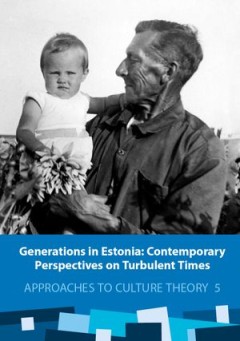
Generations in Estonia Contemporary Perspectives On Turbulent Times
This book provides the international reader with the first study of different generations and intergenerational relations in Estonia. The chapters highlight generational patterns in the 20th and 21st centuries, with the volume as a whole taking an interdisciplinary approach. Sharing the idea that generations are dynamic, that their borders are blurred and change over time, and that their constr…
- Edition
- -
- ISBN/ISSN
- 9789949770557
- Collation
- -
- Series Title
- -
- Call Number
- -

Classic Concepts in Anthropology
The late anthropologist Valerio Valeri (1944–98) was best known for his substantial writings on societies of Polynesia and eastern Indonesia. This volume, however, presents a lesser-known side of Valeri's genius through a dazzlingly erudite set of comparative essays on core topics in the history of anthropological theory. Offering masterly discussions of anthropological thought about rit…
- Edition
- -
- ISBN/ISSN
- 9780990505082
- Collation
- -
- Series Title
- -
- Call Number
- 301 CLA c

Being and Hearing: Making Intelligible Worlds in Deaf Kathmandu
How do deaf people in different societies perceive and conceive the world around them? Drawing on four years of anthropological fieldwork in Nepali deaf communities, Being and Hearing shows how questions of cultural difference are profoundly shaped by local habits of perception. Beginning with the premise that philosophy and cultural intuition are separated only by genre and pedigree, Peter Gra…
- Edition
- -
- ISBN/ISSN
- 9780999157039
- Collation
- -
- Series Title
- -
- Call Number
- 301 GRA b
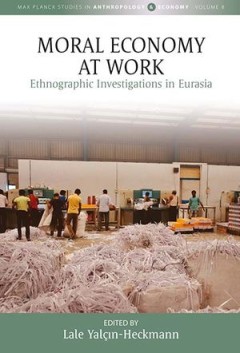
Moral Economy at Work: Ethnographic Investigations in Eurasia
The idea of a moral economy has been explored and assessed in numerous disciplines. The anthropological studies in this volume provide a new perspective to this idea by showing how the relations of workers, employees and employers, and of firms, families and households are interwoven with local notions of moralities. From concepts of individual autonomy, kinship obligations, to ways of expressi…
- Edition
- -
- ISBN/ISSN
- 9781800732353
- Collation
- -
- Series Title
- -
- Call Number
- 301 MOR m

Exhibiting Atrocity: Memorial Museums and the Politics of Past Violence
Through a global comparative approach, Amy Sodaro uses in-depth case studies of five exemplary memorial museums that commemorate a range of violent pasts and allow for a chronological and global examination of the form: the US Holocaust Memorial Museum in Washington, DC; the House of Terror in Budapest; the Kigali Genocide Memorial Centre in Rwanda; the Museum of Memory and Human Rights in Sa…
- Edition
- -
- ISBN/ISSN
- 9780813592145
- Collation
- -
- Series Title
- -
- Call Number
- 301 SOD e

Southeast Asian Anthropologies: National Traditions and Transnational Practices
Anthropology is a flourishing discipline in Southeast Asia. This book makes visible the development of national traditions and transnational practices of anthropology across the region. The authors are practising anthropologists with decades of experience in the intellectual traditions and institutions that have taken root in the region. Three overlapping issues are addressed in these pages. Fi…
- Edition
- -
- ISBN/ISSN
- 9789814722964
- Collation
- -
- Series Title
- -
- Call Number
- 301 SOU s

The Border and Its Bodies: The Embodiment of Risk Along the U.S.-México Line
The Border and Its Bodies examines the impact of migration from Central America and México to the United States on the most basic social unit possible: the human body. It explores the terrible toll migration takes on the bodies of migrants—those who cross the border and those who die along the way—and discusses the treatment of those bodies after their remains are discovered in the desert.…
- Edition
- -
- ISBN/ISSN
- 9780816539475
- Collation
- -
- Series Title
- -
- Call Number
- 301 BOR b
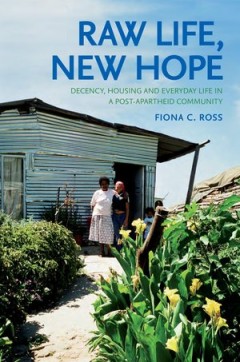
Raw Life, New Hope: Decency, Housing and Everyday Life in a Post-Apartheid Co…
The Cape Flats, a windswept, barren and sandy area which rings Cape Town, is home to more than a million people. Many live here in sprawling shack settlements. The post-apartheid state is attempting to eradicate such settlements by providing formal houses in planned residential estates. Raw Life, New Hope is a longitudinal study of the residents of one such shack settlement, The Park, who moved…
- Edition
- -
- ISBN/ISSN
- 9781919895277
- Collation
- -
- Series Title
- -
- Call Number
- 301 ROS r
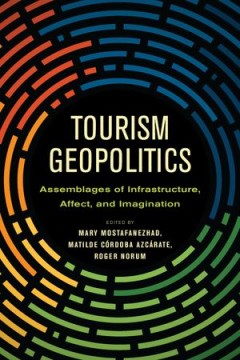
Tourism Geopolitics: Assemblages of Infrastructure, Affect, and Imagination
By the start of the century, nearly one billion international travelers were circulating the globe annually, placing tourism among the worlds’ most ubiquitous geopolitical encounters. While the COVID-19 pandemic brought the industry to a sudden halt, its geopolitical significance remained. With striking clarity, tourism desires and reinvented mobilities revealed the impermanence of Old World …
- Edition
- -
- ISBN/ISSN
- 9780816539307
- Collation
- -
- Series Title
- -
- Call Number
- 338.4791 TOU t
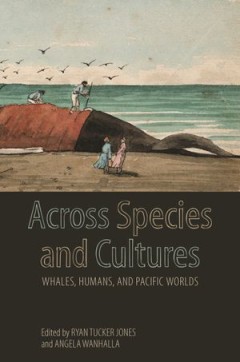
Across species and cultures (EPUB): Whales, Humans, and Pacific Worlds
More than any other locale, the Pacific Ocean has been the meeting place between humans and whales. From Indigenous Pacific peoples who built lives and cosmologies around whales, to Euro-American whalers who descended upon the Pacific during the nineteenth century, and to the new forms of human-cetacean partnerships that have emerged from the late twentieth century, the relationship between the…
- Edition
- -
- ISBN/ISSN
- 9780824892142
- Collation
- -
- Series Title
- -
- Call Number
- 301 ACR a
 Computer Science, Information & General Works
Computer Science, Information & General Works  Philosophy & Psychology
Philosophy & Psychology  Religion
Religion  Social Sciences
Social Sciences  Language
Language  Pure Science
Pure Science  Applied Sciences
Applied Sciences  Art & Recreation
Art & Recreation  Literature
Literature  History & Geography
History & Geography